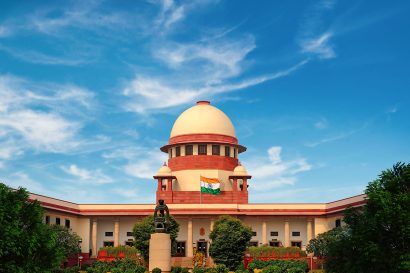New Delhi (Rajeev Sharma): In a significant development, the Supreme Court of India on Monday stayed the implementation of certain provisions of the Waqf (Amendment) Act, 2025, citing concerns over constitutional propriety and the separation of powers.
A bench headed by Chief Justice of India BR Gavai and Justice AG Masih issued interim directions while hearing a batch of petitions challenging the validity of specific amendments introduced in the 2025 legislation.
Five-Year Religious Practice Clause Put on Hold
The Court stayed the operation of the clause under Section 3(1)(r), which required an individual to have practiced Islam for at least five years in order to create a valid waqf. The bench noted that the enforcement of this condition should be held in abeyance until individual state governments frame clear rules on how such a requirement would be verified.
Executive Cannot Decide Property Disputes
In a more far-reaching order, the Court restrained the implementation of the provision that authorized a government-designated officer to determine whether a waqf property has encroached upon government land. The bench observed that empowering an executive functionary to decide disputes concerning individual rights undermines the principle of separation of powers and could set a dangerous precedent.
“Adjudication of legal rights is the exclusive domain of the judiciary or quasi-judicial bodies. An Executive Officer cannot be allowed to unilaterally decide such disputes,” the Court remarked.
However, it clarified that until the matter is resolved by a competent tribunal, no third-party rights may be created in connection with disputed properties.
Inclusion of Non-Muslim Members Allowed, With Caution
The Court did not intervene in the provision allowing non-Muslims to be nominated to Waqf Boards. However, it issued a guiding observation stating that, wherever possible, ex-officio members should be individuals from the Muslim community to preserve the representative character of the Board.
Additionally, the bench suggested that the Central Waqf Council should not have more than four non-Muslim members, and State Waqf Boards should limit the number to three, ensuring the Boards remain predominantly Muslim in composition.
Registration Requirement Upheld, Timelines Extended
The Court also upheld the mandatory registration of waqf properties, emphasizing that this was not a novel obligation but had already been part of earlier legislations enacted in 1995 and 2013. However, the timeline for compliance with the registration requirement has been extended, with the specific dates to be confirmed once the full judgment is published.

